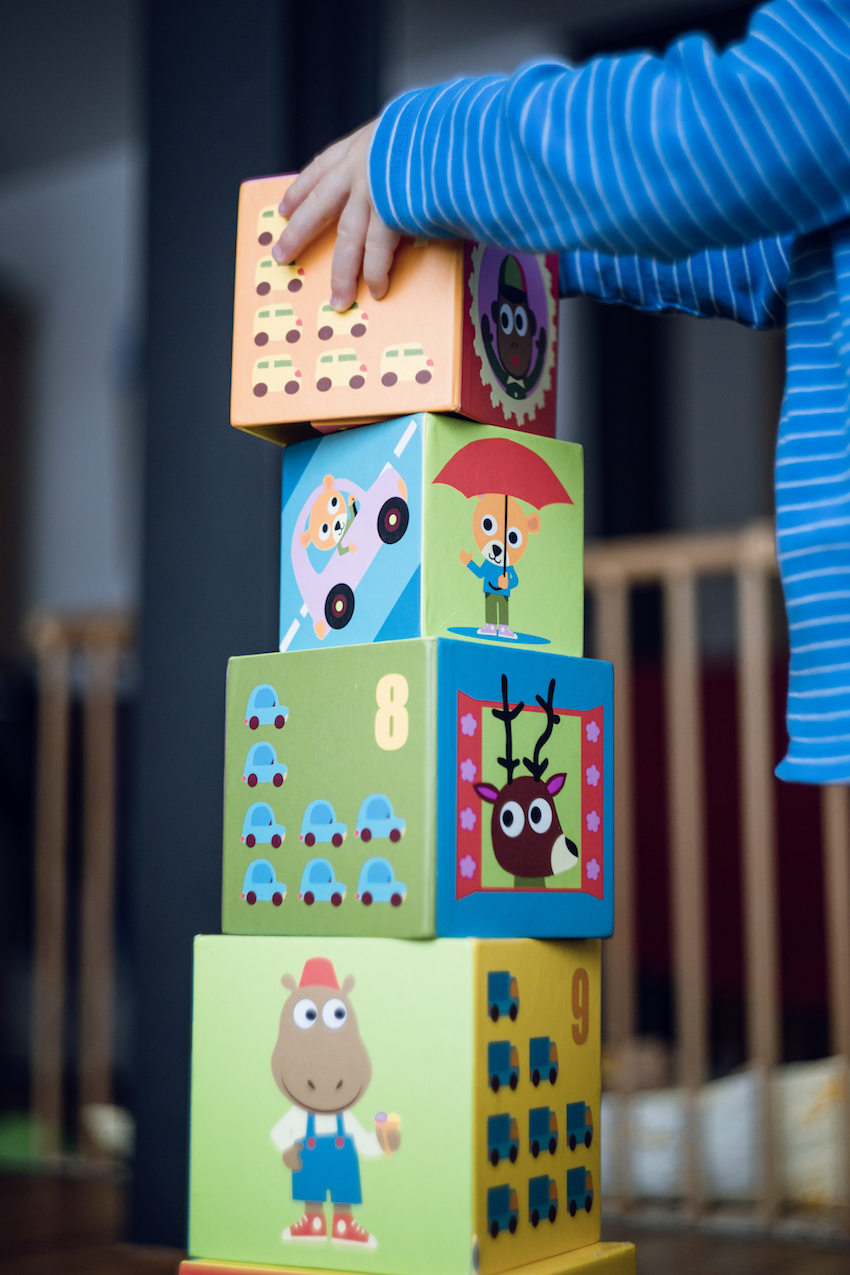Whether you’re a marketer with an exciting new campaign idea, an entrepreneur with a society-shifting innovation, or even an intrapreneur with a heroic improvement to the existing business model, you’re going to have to get good at pitching your idea in the best way possible to get the right people on board.
No one is naturally exquisite in communicating an idea in just the right way to get investors - or bosses - to stand up and shout, “yes, yes, YES! Take my money now!”
It takes practice and skill, no matter who you are.
So, how and with whom, then, do you practice pitching an idea the right way?
Look no further than your own offspring - the bright, energetic, insightful audience you already have, right in your own home.
Kids are great for a lot of reasons, but you may be surprised to realize that your own kids can be very helpful in your professional life, too. Let’s explore the top 8 reasons why pitching your ideas to your kids first will make your pitch infinitely better - and ready for the moment when it truly matters.
1. They will ask the important questions you may have overlooked.

Sometimes, the most obvious questions are the ones that you forget to address before pitching an idea. Kids help you out by being the wonderful, curious creatures they are and bringing the seemingly obvious to light.
Why did you create this? How will it make money? Who are you creating this solution or campaign for?
With the excitement of a new idea, it’s easy to jump to the juicy stuff, the ideals, rather than hash out all the boring basics that make the idea feasible in the first place.
While it’s good to think big and look into the future, expressing your idea to your child can bring you back to reality when they ask something like, “where will the funding come from?” and you realize you hadn’t yet hashed out that boring - albeit very important - detail.
2. You’ll have to use simple language to communicate your idea.

Not only does simplifying the language you use when pitching an idea make it friendly for all audiences, it also keeps your idea from getting too technical and bogged down with big, boring terms that aren’t essential to communicating the core elements.
Many entrepreneurs or marketers may dismiss this idea, claiming that, in their case, the whole concept is just too complicated to break down into lay terms, but that’s just the thing: it’s not.
If the idea is too complicated to simplify, it’s just too complicated as a strategy and must be reassessed anyway.
If the idea itself is not too complicated, then there is absolutely a way to change the language and simplify the presentation to more relatable terms; it just takes more effort.
Investors, in the entrepreneurial case, are hoping to be sold on something new, exciting, and life-improving, so if your presentation - no matter how much the idea matches the criteria - isn’t effective in sparking excitement right away, there go your chances at getting their attention...and ultimately, investment.
3. It helps you get over the assumption that your audience knows as much as you do.

I don’t mean that your audience, kids and adults alike, is not smart - what I mean, rather, is that not everyone is an expert in the subject that you are masterful in.
Expecting your audience to pick up what you’re putting down with highly technical language is an assumption you certainly don’t want to make.
If your industry has a lot of specialized terms tied to it, you’re going to have to explain these so that you don’t lose your audience long before you get to the good stuff.
To help your audience understand the core elements of your marketing campaign and how it will be effective, you’ll need to get out of your marketing mode and into “normal person” mode.
I know you want to sound all smart and savvy, but you’re communicating ideas here, not expertise.
Kids don’t (usually) know the lingo that goes with today’s marketing, especially all those acronyms: ROI, SERP, CTA, CRO, CRM, KPI, CTR...I could rattle them off all day, but you get the picture.
The bottom line: don’t use industry-specific terminology unless you’re certain the audience knows them.
Another deadly assumption to make is that any analogy is a good analogy.
Many times, entrepreneurs like to present their idea as “the Netflix of” some industry, or compare their idea to another successful brand in some other way.
It’s certainly one way to make a dramatic point, but the impact will not be sufficient if your audience is left wondering how your idea is really like Netflix, or worse, what Netflix even is in the first place.
If you read the sentence above and wondered to yourself, “who the heck doesn’t know what Netflix is?” you’re already falling victim to assuming the analogy would work - with any audience, too.
It’s better to play it safe than to swing and miss the mark.
Rather than leaning on analogies to make your idea more dramatic, read your audience and provide a story that’s relatable to their situation.
If you’re pitching to kids about a product or campaign that pertains to the elderly, tie in an anecdote about your grandparents or a hypothetical about theirs, and they’ll be able to understand the impact of your idea better than otherwise.
4. You will find the balance between oversimplifying and overcomplicating.

Kids are just kids, but they certainly aren’t stupid, so don’t talk to them like they are.
They’re constantly observing and absorbing the world around them. They comprehend their surroundings in the vocabulary that is available to them, and so treating them as overly naive isn’t good for anyone involved.
Pitching an idea to kids can be a valuable lesson in assuming your audience’s level of understanding, as you may find that kids grasp more than you anticipated...and investors may get lost in your highly detailed, overly complicated pitch, too.
Just because someone is a seasoned investor doesn’t mean that big, complex ideas will resonate with them in the right way.
It’s important to find the perfect in-between for any audience so that you don’t come off as either condescending or confusing, but rather perfectly clear.
5. You get used to short attention spans.

Kids are restless; investors are busy.
That’s why pitching anything to your kids before the real deal gives you a realistic preview of how much time you really have to convey your awesome idea.
I know: you’re passionate about your pitch and want to hash out every little detail that you find important to the big picture...but that’s just it: getting bogged down in the details blurs the big picture that investors, bosses, and even kids rely on to derive their verdict.
Big investors are busy, important people who will allocate as little as 15 minutes for your presentation.
Practice your pitch on your kids to get an idea of the time frame you need.
It’s also good practice to do a run-through and recognize what can be omitted, what needs to be said up front, and to polish up your pitch into a neat, compact, and clear presentation.
6. Kids ask the questions that investors would ask anyway.

Consider pitching ideas to your kids as a practice round, not simply a mock presentation.
Kids think very practically and will ask the questions that they need answers to in order to understand the benefits - and shortcomings - of an idea.
Pitch to them first and earn a chance to come up with answers to unconsidered questions before you’re truly on the spot.
It turns out, from past events where entrepreneurs pitch ideas to kids, that children actually ask many of the same questions that a typical investor would.
This is great news, because you get a practice run in which your audience can catch some details that you may have overlooked before they truly count for something.
Wouldn’t you rather clarify a point in your pitch to your kids who love you than to just be coldly shut down by an investor and lose your opportunity?
7. You’ll get an honest opinion to prepare you for the real presentation.

Kids can be brutally honest, which can be both good and bad.
In this case, wouldn’t you prefer to hear why your idea might not work from your own child rather than an investor who won’t give you a second chance?
It’s important to identify any pitfalls before putting an idea or campaign out there, and your kids are the perfect candidates for helping you with that.
When you have an idea that you dedicate time, money, enthusiasm, and maybe a bit of your soul to, you don’t want all that effort to go to waste because you overlooked a tiny detail.
Get the truth out of your kids on the feasibility of the idea and go forth with confidence.
8. Your kids also benefit by sharpening their business and critical thinking skills.

It’s a win-win for everyone.
Your kids help you test your idea against the odds, and in return, you help cultivate their passion for entrepreneurship and presentation skills for the future.
That way, they can grow up to be just like you!




